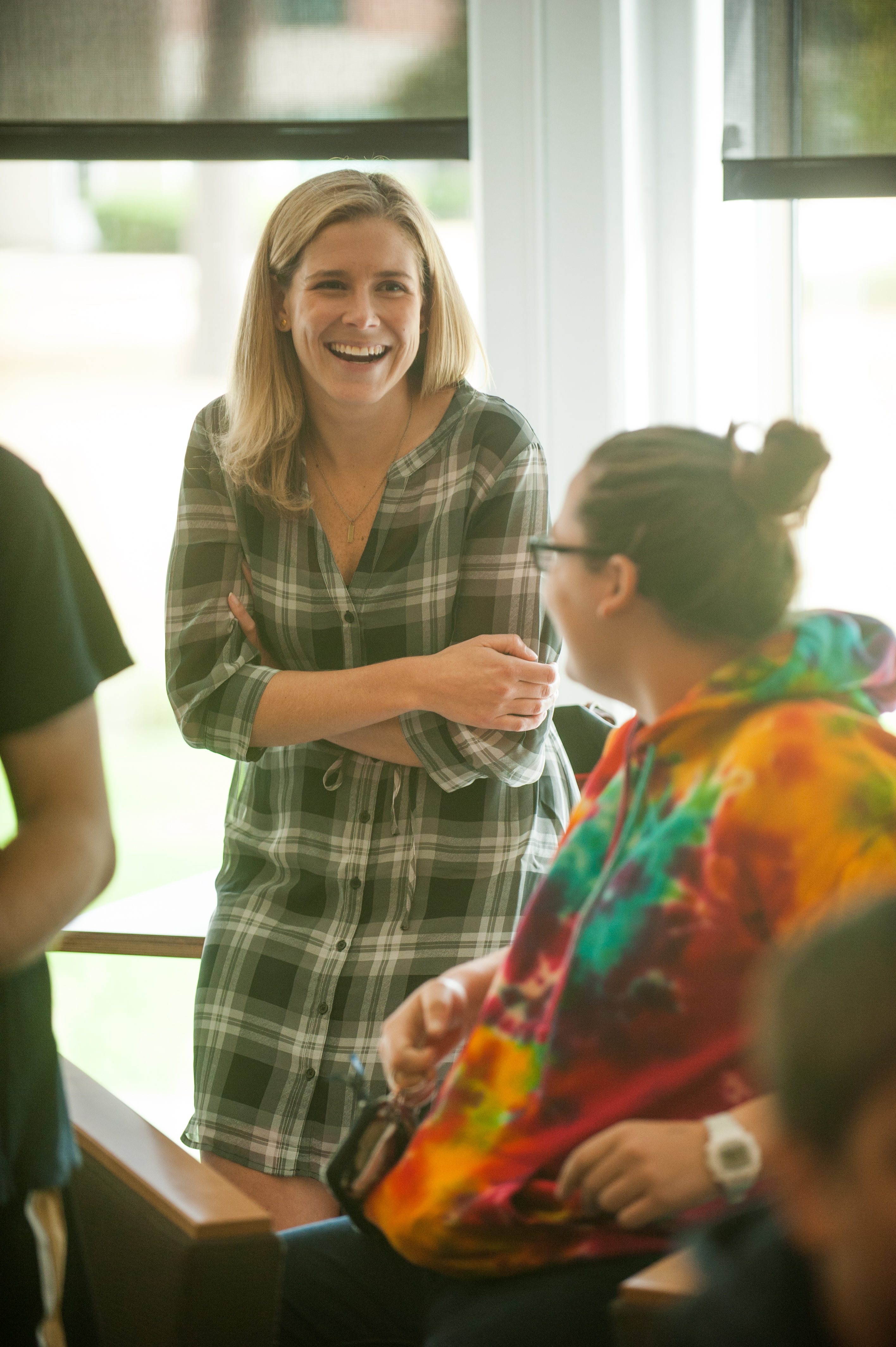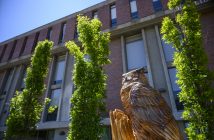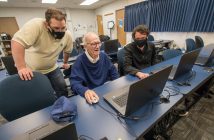Alex Manicke of Amherst is exploring an interest in theater history, and Skyelar Besaw of Westfield is focusing on drawing anime. Nontraditional students, the two are enrolled in the two-year-old Inclusive Concurrent Enrollment (ICE) Program.
The University’s ICE Program offers classes and a campus experience to students between the ages of 18 and 22 with significant limitations in intellectual functioning and adaptive behavior.
ICE students tend to struggle with learning everyday social and practical skills, and the program helps give them a boost with both academic and social experiences that better prepare them for life after school. University students who serve as peer mentors round out the experience and offer friendship as well as mentoring.
“We started with five students in 2013, and this year, the program has grown to 20 students from six school districts,” says Lyndsey Nunes, program coordinator.
Their inclusion in campus life and classes helps them pursue their own interests. For instance, Manicke, along with exploring theater, is also learning about biology and computer programming. “I am really liking my theater class,” he says. “I have been onstage before, but now I am learning about the history of the theater.”
Besaw creates unique and lively pencil drawings. She has been taking an art class and learning to use new mediums, like charcoal and paint. “I am working on a still life right now,” she says, holding up an image of her impressive work on her cell phone.
Students in the program receive support from their home school districts, which provide both the transportation to Westfield State and education coaches, or ed coaches, who assist them with tasks and activities on campus.
“The coaches are very tuned in to the student they are assisting, with the goal of supporting the student’s independence,” Nunes says.
“Some students are on campus every day, and some only when they have class,” says Nunes, adding, “The program has developed a plan of classes and activities based on our students’ interests and career plans. For instance, we have a student interested in engineering, so he is auditing a math class. Another student, interested in a criminal justice career, has taken an intro to criminal justice class and now a political science course,” adds Nunes.
When one student expressed an interest in cosmetology, which isn’t offered at Westfield State, Nunes suggested studying sociology, psychology and art as related disciplines.
The integration of the students is benefiting the entire campus in mutually positive ways.
In addition to taking classes, some ICE students volunteer in a variety of campus departments. “We have someone in the library, the Wellness Center, Student Affairs and the basketball team,” says Nunes. There are also weekly socials, when ICE students, peer mentors and ed coaches get together in the Ely Campus Center and catch up with each other.
Students in the ICE program receive tremendous support from their peer mentors—Westfield State student volunteers, many of whom are education majors. “We have a large group of over 70 in our email chain, with 10 to 20 Westfield State students who are solid active mentors,” says Nunes.
“I encourage our peer mentors to have meaningful relationships with the ICE students,” says Nunes, noting that she advises mentors to treat the students as they would any friend.
“I want the mentors to make real friendships, not feel like they are showing up for a job,” says Nunes. “It is through these authentic relationships that the ICE students acquire career and life skills while participating in college life like their peers and siblings.” In fact, Nunes is pursuing official Westfield State University club status for the peer mentors.
Peer mentor Colleen White ’16 of Canton heard about the ICE program through a friend, who said, “You need to meet these kids. You need to be involved.” White joined her friend, met two ICE students, and her interest was piqued. “I was immediately impressed and signed up for Lyndsey’s class, Introduction to Learners with Exceptional Needs. Now, being a peer mentor is the best part of my education,” says White.
Sabryna Nastari ’16 of Andover found her way to peer mentoring by needing observation hours for another class. “I really enjoyed working with the students on the academic side. Once my hours were up, I didn’t want to stop,” she says. “This year, I am mentoring three days a week, yet spend most of my spare time with these students.” As a result of her experiences, Nastari, an English major, is going on to graduate school to study special education.
Looking forward, Nunes is aligning the ICE program with draft recommendations for eventual accreditation. “This model is being implemented widely on college campuses, and I am excited to take our program to the next level,” says Nunes.
Nunes recalls the end of her first hectic day implementing the ICE program. She had just concluded giving an ICE student a suggestion about his behavior when a traditional student asked her, “Is he a student here?”
When Nunes responded that he was, the student smiled broadly and said, “That’s amazing. Awesome!”
Not long afterward, that student became a peer mentor, along with several of his friends.




